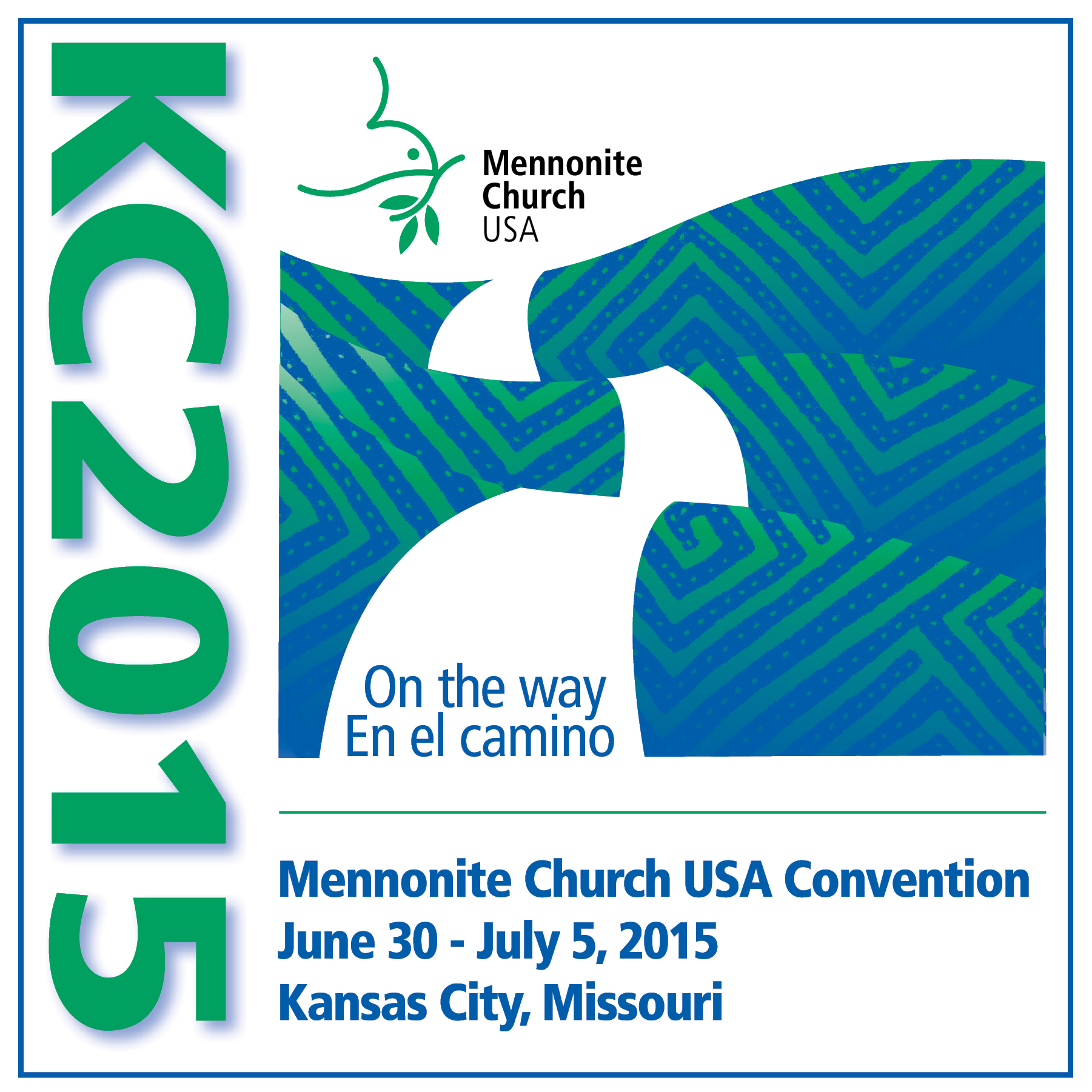 This is the first of four Bible studies by different authors on the key Scripture text for Mennonite Church USA’s next biennial convention, to be held June 30–July 5, 2015, in Kansas City, Mo. “On the way/En el camino” is the convention theme, and the Scripture text is Luke 24.
This is the first of four Bible studies by different authors on the key Scripture text for Mennonite Church USA’s next biennial convention, to be held June 30–July 5, 2015, in Kansas City, Mo. “On the way/En el camino” is the convention theme, and the Scripture text is Luke 24.
By Tonya Keim Bartel
“If it sounds too good to be true, it probably is.” How often have you replied with this phrase when great things appeared? Are you guilty of giving in to that dull voice of doubt when fortune smiles on someone you love? I am. And the story of Luke 24 shines a bright spotlight on this glaring faith flaw.
As a teenager, I worked at a restaurant where back in the kitchen, we servers would scoff at people who requested modifications to their orders. But there’s this thing about life where you can count on what you made fun of happening to you. … My nine-year-old daughter is severely gluten intolerant. Since discovering her intolerance three years ago, I’m the annoying one with the special food orders. Every time.
In the rush of everyday life, putting nutritious, tasty food in front of my family is tricky enough. It’s doubly overwhelming to make modifications to every snack and meal, not to mention finding a doctor who understands the implications of what we eat on our health. We love our pediatrician, but he knows far less than we do about how gluten affects the body’s organs. For instance, he’ll prescribe medicine for a persistent cough instead of connecting the dots between my daughter’s years of eating gluten and how her body is processing food now, causing asthmatic symptoms.
One normal day, after three years of searching, someone at church casually suggested a medical doctor about 45 minutes away from us. And now I call him Dr. Unicorn—because he’s just plain too good to be true. He has an office like a spa and an out-of-this world knowledge of nutrition, loves children, and above all, has helped my daughter’s health tremendously. He is good—oh so good—news for our whole family! Yet when I drive to his office, I expect it to be replaced by a reasonable business like a dry cleaner’s or a bank. I watch for a hiccup in his practice that would seal the deal on his being a flake and not the doctor we were seeking.
Why is it so hard to believe that what we beg and hope for in our daily life—when it really happens—is too good to be true? Why can’t we embrace the good news and settle into it? Isn’t believing and welcoming the everyday miracles of our great big God the whole point of Faith?
The Luke 24 story is the precise opposite of the doubtful nature of our culture. Jesus’ resurrection and ascension demonstrate the obvious: God is so incredibly big—so far beyond our wildest dreams and imaginations—and indeed shows up in everyday, inconceivable ways! The wonderment of our faith is that what sounds too good to be true is indeed true!
5 The women were terrified and bowed with their faces to the ground. Then the men asked, “Why are you looking among the dead for someone who is alive? 6 He isn’t here! He is risen from the dead! …” 9 So they rushed back from the tomb to tell his eleven disciples—and everyone else—what had happened.
They didn’t hesitate. They saw it, heard it and got it! Mary Magdalene, Joanna and Mary the Mother of Jesus had watched the man they love die and were the first ones to arrive at his tomb. As women, they were people whose word was least likely to be believed. But without giving thought to their perceived credibility, they hurried to tell the others. Imagine them running, tripping over their cloaks and interrupting one another as they relayed the news to the apostles.
And those apostles were exactly like me. And I suspect quite like you.
11 But the story sounded like nonsense to the men, so they didn’t believe it.
Look at that: Doubting is human nature; we are wired to exercise caution toward anything beyond our previous experience. Even the apostles did. Then there’s Peter …
12 However, Peter jumped up and ran to the tomb to look. Stooping, he peered in and saw the empty linen wrappings; then he went home again, wondering what had happened.
Peter, a leader among the disciples, had been part of the good news of Jesus’ ministry for years. Yet, just three days earlier, in Jesus’ most desperate hours, he had rejected him. It must have broken his heart to so adamantly deny Jesus. Maybe on this day he was grasping the reality of grace, the opportunity to redeem his lacking loyalty.
Imagine him going to the tomb alone, quietly pondering, returning multiple times to check it, inquiring of the people he met for their account of what really happened. Like Peter, we watch for God, deny our Lord, beg him to show up, and then try to make the pieces fall into place, to pair what we know and have experienced with what is clearly far too good to be true.
Later, on the road to Emmaus, the two followers of Jesus discussed his resurrection, and Jesus appeared to them, saying:
25 “You foolish people! You find it so hard to believe all that the prophets wrote in the Scriptures … .”
I know Jesus was talking to me, too. I say I believe in an inconceivably big God who can move mountains. I say the prophets were real and important. I say I believe in the resurrection. Yet when resurrection shows up in my own piddly everyday existence, I get doubtful and cynical, thinking I made it up. At my very best, I’m still waiting for the other shoe to drop.
As I prepare for convention, spend time in Luke 24, and go about my everyday-ness, I so want to more fully embrace the resurrection. I want to lose myself in total trust in miracles like the three women; I want to grab onto grace like Peter; I want to walk alongside the prophets and my Jesus with complete abandon. I pray, with full expectation, that you, I and our church may embrace the inconceivable good news of Jesus!
###
—Tonya Keim Bartel, Hesston, Kan., serves as convention planning expediter for Mennonite Church USA.
Images available:
The author and her daughter. (Photo provided)
KC2015 logo


